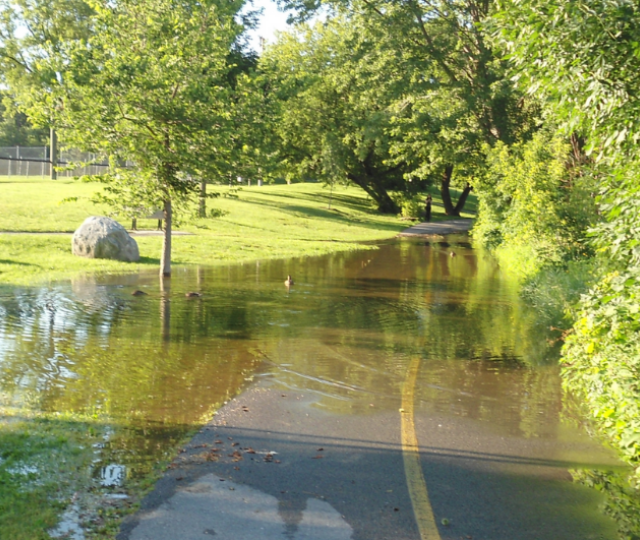Latest flood news and conditions
- Flood Warning and Advisory Notification Map (BC River Forecast Center)
- Media Centre & Alerts
- EmergencyInfoBC
- Visit your local regional district or municipality’s website
- DriveBC - Road conditions and events
Learn about the steps you can take to prepare for floods or landslides, and to manage flood or landslide-related issues.

The following links provide information on flooding and landslide-related issues. For information related to your specific health situation, contact your local physician.
Floods and other disasters can damage drinking water wells and lead to groundwater and well contamination. Floodwater can contaminate well water with livestock waste, human sewage, chemicals, and other contaminants that can lead to illness when used for drinking, bathing, and other hygiene activities. Dug wells, bored wells, and other wells less than 50 feet deep are more likely to be contaminated, even if damage is not apparent (source CDC).
Get information for drinking water operators
Never use flood water or contaminated drinking water for drinking, preparation of baby food, personal hygiene (e.g., washing or brushing teeth) or washing dishes or surfaces you prepare food on.
View our drinking water page for information on sample results, advisories and private water systems.
All flood water should be considered contaminated.
Your on-site sewage disposal system may become unsafe to use if it is impacted directly by floods, damaged by heavy equipment or machinery, or had power outages.
If you find your sewage system was at risk of being impacted by floods or landslides or is not operating as intended (household plumbing is slow to drain, smells or pooling on the field area, etc.) then you should contact an authorized person to assess your system to ensure it is safe for use.
Visit Sewerage, Subdivisions & Healthier Industries to find more info on how to find an authorized person who can inspect and/or repair an onsite sewerage system, or to locate your on-Site sewage record
Any water systems in the Interior Region that experience disruption to regular operations, such as loss of treatment, loss of pressure, loss of power, loss of source or loss of system integrity should implement their emergency response procedures immediately. This includes issuing public notifications such as boil water notices, water quality advisories or do not use orders, as appropriate.
Follow your emergency response plan.
The following documents provide information that may assist food service operators address, remediate and manage operations to ensure public health safety, during and after wildfire events:
Follow your emergency response plan.
Food Safety
Water Quality
Waste Disposal
If your business has an on-site sewage disposal system, it may become unsafe to use if it is impacted directly by floods, landslides, damaged by heavy equipment or machinery, or had power outages.
If you find your sewage system was at risk of being impacted by floods or landslides or is not operating as intended (plumbing is slow to drain, smells or pooling on the field area, etc.) then you should contact an authorized person to assess your system to ensure it is safe for use.
The following documents provides information to assist community care homes and child care operators address, remediate, and manage operations to ensure safety of persons in care and employees, during and after wildfire events:
Follow your emergency response plan.
Find information on drinking water, food safety and waste disposal
Care for clients


Shari, Maxwell, and Andrew work together across many different teams to provide sustainable, safe, and high quality facilities to patients and staff.
/stories/we-are-ih-staff-who-work-together-patient-comfort-safety


IH offers a range of services to help those who may have mental health, substance use or housing needs.
/stories/sharing-warmth-and-hope-ih-health-services-help-communities


Jayme helps ensure lived experiences are not just welcomed but embedded across Mental Health and Substance Use services at IH.
/stories/we-are-ih-coordinator-centres-peer-voices-care


As temperatures drop, it’s important to be aware of the health risks of cold. Here's what you can do to ensure you remain safe and healthy.
/stories/how-protect-yourself-and-others-when-temperature-drops


Heart disease is the number one killer of women worldwide and the leading cause of premature death in Canada. One in 3 women will be affected by heart disease.
/stories/how-women-experience-heart-disease-differently-men


Wavemakers is a free, groundbreaking virtual reality career-building program where post-secondary students can build skills and connect with employers like IH.
/stories/ih-helps-students-explore-careers-through-virtual-reality-program
Receive news, alerts, public service announcements and articles right to your inbox.
